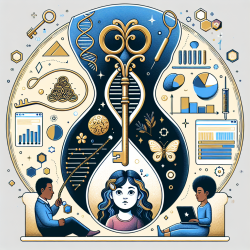Introduction to VIA Character Strengths
In the realm of positive psychology, the concept of Character Strengths (CS) has emerged as a cornerstone for understanding human well-being and optimal functioning. This framework, developed by Peterson and Seligman (2004), identifies 24 character strengths that are universally valued and serve as the psychological ingredients that define virtues. These strengths are measured using the VIA Inventory of Strengths (VIA-IS), which has been administered globally, allowing researchers to explore the makeup and structure of these strengths.
Implementing Character Strengths in Practice
For practitioners, understanding and implementing VIA Character Strengths can significantly enhance their skills and effectiveness. The research article "Editorial: VIA Character Strengths: Theory, Research and Practice" provides a comprehensive overview of the latest developments in this field. It highlights how character strengths can be applied in various domains, including clinical, counseling, organizational, and educational settings.
Benefits of Character Strengths in Educational Settings
In educational environments, character strengths can be integrated into school counseling and interventions for children and adolescents. Research has shown that strengths-based interventions can lead to improved well-being, personal growth, and academic performance. Practitioners in educational settings can utilize these insights to foster a positive and supportive learning environment.
Addressing Challenges with Character Strengths
One of the challenges practitioners face is the need to address staffing shortages, particularly in therapy services. By leveraging character strengths, practitioners can enhance their resilience and adaptability, enabling them to navigate these challenges more effectively. For instance, strengths such as perseverance, teamwork, and leadership can be pivotal in managing and overcoming staffing issues.
Encouraging Further Research and Exploration
The article encourages practitioners to delve deeper into the research on character strengths and explore novel applications. It suggests that there is substantial potential for expanding research into new areas, such as the role of character strengths in spiritual positive psychology and their impact during crises like the COVID-19 pandemic.
Conclusion
Incorporating VIA Character Strengths into practice offers a pathway to enhance practitioner skills and improve outcomes across various domains. By understanding and applying these strengths, practitioners can contribute to the cultivation of a good life for individuals and communities. For those interested in further exploring this topic, the original research paper provides a wealth of information and insights.
To read the original research paper, please follow this link: Editorial: VIA Character Strengths: Theory, Research and Practice.










